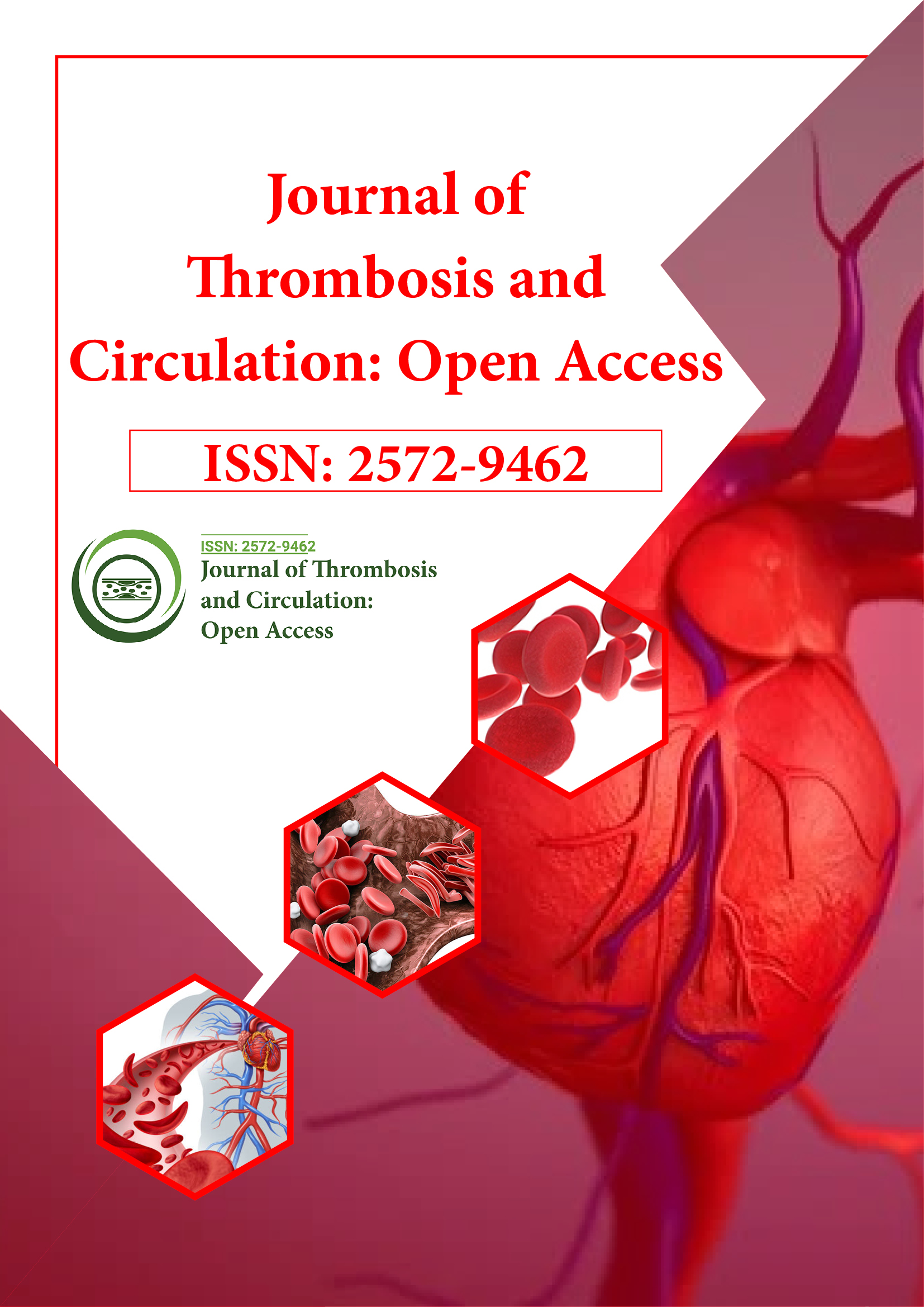Indexed In
- RefSeek
- Hamdard University
- EBSCO A-Z
- Publons
- Google Scholar
Useful Links
Share This Page
Journal Flyer

Open Access Journals
- Agri and Aquaculture
- Biochemistry
- Bioinformatics & Systems Biology
- Business & Management
- Chemistry
- Clinical Sciences
- Engineering
- Food & Nutrition
- General Science
- Genetics & Molecular Biology
- Immunology & Microbiology
- Medical Sciences
- Neuroscience & Psychology
- Nursing & Health Care
- Pharmaceutical Sciences
Commentary - (2023) Volume 9, Issue 4
Genetic Predisposition and Environmental Factors in Atherosclerosis and Autoimmunity
Chile Ionnis*Received: 19-Jun-2023, Manuscript No. JTCOA-23-22271; Editor assigned: 21-Jun-2023, Pre QC No. JTCOA-23-22271 (PQ); Reviewed: 06-Jul-2023, QC No. JTCOA-23-22271; Revised: 13-Jul-2023, Manuscript No. JTCOA-23-22271 (R); Published: 21-Jul-2023, DOI: 10.35248/2572-9462.23.9.236
Description
Atherosclerosis, a chronic inflammatory disease characterized by the buildup of plaque within arterial walls, has long been recognized as a major contributor to cardiovascular diseases such as heart attacks and strokes. Autoimmunity, on the other hand, refers to an immune response that mistakenly targets the body's own tissues and organs. While these two conditions may appear distinct, emerging research has shed light on a fascinating interplay between atherosclerosis and autoimmunity. Atherosclerosis involves the progressive accumulation of cholesterol, immune cells, and cellular debris within the inner lining of arteries. This accumulation forms plaques, leading to the narrowing and hardening of the arteries, ultimately impeding blood flow. The immune system plays a crucial role in atherosclerosis, as the initial trigger for plaque formation is damage or dysfunction of the arterial endothelium. Subsequently, immune cells, particularly monocytes and T lymphocytes, infiltrate the damaged areas, initiating an inflammatory response. Autoimmunity refers to the breakdown of immune tolerance, resulting in the immune system targeting self-antigens. Traditionally, atherosclerosis was primarily attributed to the accumulation of lipids and the subsequent inflammatory response. However, recent studies have suggested that autoimmunity may contribute significantly to atherosclerotic plaque development and progression. In autoimmune diseases such as Systemic Lupus Erythematosus (SLE) and Rheumatoid Arthritis (RA), circulating autoantibodies against self-antigens are commonly observed. Interestingly, these autoantibodies have been detected in individuals with atherosclerosis as well. For instance, antioxidized Low-Density Lipoprotein (LDL) antibodies have been found in the blood and within atherosclerotic plaques. These autoantibodies can facilitate the uptake of oxidized LDL by immune cells, promoting plaque formation and inflammation. T cells, key orchestrators of the immune response, have also been implicated in the pathogenesis of atherosclerosis. Studies have shown that T cells specific to self-antigens, such as heat shock proteins and oxidized LDL, infiltrate atherosclerotic lesions. These activated T cells secrete pro-inflammatory cytokines and further amplify the local immune response, exacerbating plaque formation and destabilization. Both atherosclerosis and autoimmunity share common immunological pathways involving cytokines, chemokines, and adhesion molecules. For example, the pro-inflammatory cytokine interleukin-6 (IL-6) is elevated in both conditions and has been associated with plaque vulnerability and cardiovascular events. Moreover, the infiltration of immune cells into arterial walls, a characteristic feature of atherosclerosis, is reminiscent of the immunemediated inflammation seen in autoimmunity.
Genetics and environmental factors play critical roles in both atherosclerosis and autoimmune diseases. Certain genetic variations associated with autoimmune susceptibility, such as specific Human Leukocyte Antigen (HLA) alleles, have been linked to an increased risk of atherosclerosis. Additionally, environmental factors like smoking, infections, and chronic inflammation can contribute to both conditions, further highlighting their interconnectedness. Understanding the link between atherosclerosis and autoimmunity opens up new avenues for therapeutic interventions. Current treatment strategies for atherosclerosis focus on lipid-lowering therapies and anti-inflammatory approaches. However, targeting specific immune mechanisms associated with autoimmunity may offer additional benefits in preventing or managing atherosclerotic cardiovascular disease. The intricate relationship between atherosclerosis and autoimmunity is gradually coming into focus. Evidence suggests that autoimmunity contributes to the initiation and progression of atherosclerosis through shared immunological pathways and the presence of autoantibodies and autoreactive T cells.
Citation: Ionnis C (2023) Genetic Predisposition and Environmental Factors in Atherosclerosis and Autoimmunity. J Thrombo Cir.9:236.
Copyright: © 2023 Ionnis C. This is an open-access article distributed under the terms of the Creative Commons Attribution License, which permits unrestricted use, distribution, and reproduction in any medium, provided the original author and source are credited.
